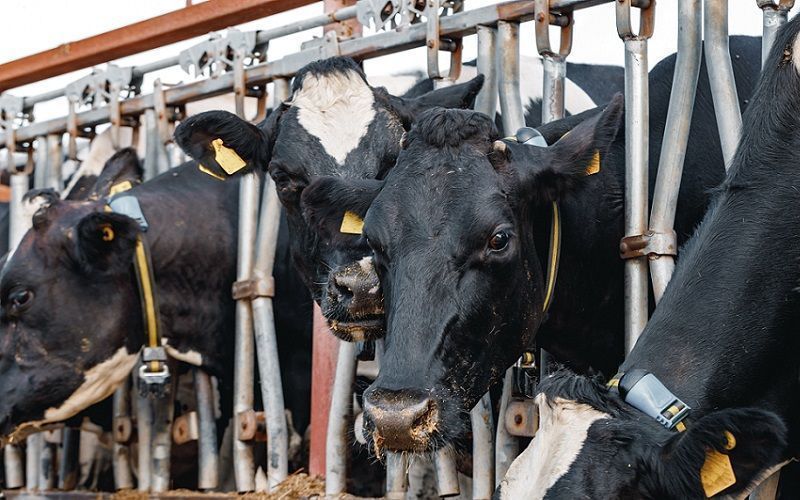Single US Bird Flu Case Raises Concerns Over Limited Testing and Pandemic Preparedness
Bloomberg reports that despite the widespread impact of avian flu on mammals across the United States, only one human case has been confirmed to date.

his low number may be attributed to the minimal testing currently being conducted on individuals. State authorities and farm owners have restricted the Centers for Disease Control and Prevention (CDC) from performing comprehensive on-site investigations, which could provide a clearer understanding of the virus's prevalence among humans.
This situation poses a significant challenge for federal officials in responding to an outbreak that is seen as the most severe test of the pandemic preparedness systems since the onset of COVID-19. The individual affected by the virus is recuperating, having only exhibited eye redness as a symptom. However, the lethality of avian flu—which has historically killed about half of those infected—underscores the potential threat if the virus were to spread more broadly.
The CDC lacks the authority to initiate on-the-ground investigations without explicit invitations from states, and so far, the states reporting infected cattle have not extended such invitations. Moreover, private dairy farms, critical to these investigations, are hesitant to allow CDC access due to concerns about the impact on their predominantly immigrant workforce and potential economic repercussions.
Abraar Karan, an infectious disease researcher at Stanford University, highlighted the inability of the CDC to conduct necessary testing and investigative work as a major concern. "We are essentially playing with fire," remarked Sam Scarpino from Northeastern University, emphasizing the insufficient surveillance to confidently assert the absence of the virus.
The CDC's preparedness to execute comprehensive bird flu testing and surveillance was affirmed by CDC Director Mandy Cohen, who stated, "We are ready to deploy." However, the states with reported cases have not yet requested CDC intervention. Limited testing in New Mexico and Texas has been conducted, with only a handful of people tested and one positive case identified among dairy farm workers.
Despite these efforts, the risk of wider transmission remains, with each mammalian infection presenting an opportunity for the virus to mutate and adapt more effectively to human hosts. The challenge is further compounded by the reluctance of workers to participate in testing, driven by fears of job loss and mistrust in public health initiatives.
In light of these factors, the CDC continues to engage with state authorities to establish protocols for more effective field studies and surveillance. The situation reflects a broader concern about the U.S.'s readiness to handle a potential outbreak of bird flu or any other virulent disease, underscoring the urgent need for improved funding and research to bolster public health defenses.
This situation poses a significant challenge for federal officials in responding to an outbreak that is seen as the most severe test of the pandemic preparedness systems since the onset of COVID-19. The individual affected by the virus is recuperating, having only exhibited eye redness as a symptom. However, the lethality of avian flu—which has historically killed about half of those infected—underscores the potential threat if the virus were to spread more broadly.
The CDC lacks the authority to initiate on-the-ground investigations without explicit invitations from states, and so far, the states reporting infected cattle have not extended such invitations. Moreover, private dairy farms, critical to these investigations, are hesitant to allow CDC access due to concerns about the impact on their predominantly immigrant workforce and potential economic repercussions.
Abraar Karan, an infectious disease researcher at Stanford University, highlighted the inability of the CDC to conduct necessary testing and investigative work as a major concern. "We are essentially playing with fire," remarked Sam Scarpino from Northeastern University, emphasizing the insufficient surveillance to confidently assert the absence of the virus.
The CDC's preparedness to execute comprehensive bird flu testing and surveillance was affirmed by CDC Director Mandy Cohen, who stated, "We are ready to deploy." However, the states with reported cases have not yet requested CDC intervention. Limited testing in New Mexico and Texas has been conducted, with only a handful of people tested and one positive case identified among dairy farm workers.
Despite these efforts, the risk of wider transmission remains, with each mammalian infection presenting an opportunity for the virus to mutate and adapt more effectively to human hosts. The challenge is further compounded by the reluctance of workers to participate in testing, driven by fears of job loss and mistrust in public health initiatives.
In light of these factors, the CDC continues to engage with state authorities to establish protocols for more effective field studies and surveillance. The situation reflects a broader concern about the U.S.'s readiness to handle a potential outbreak of bird flu or any other virulent disease, underscoring the urgent need for improved funding and research to bolster public health defenses.
Key News of the Week











